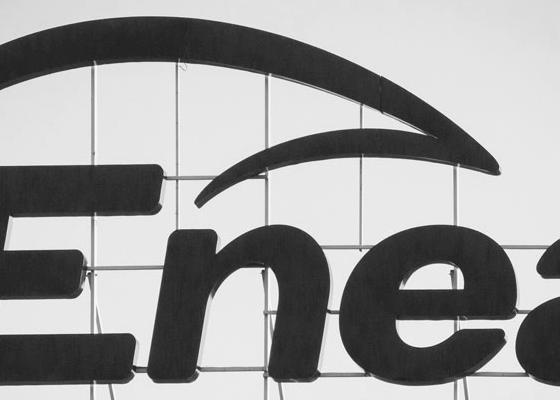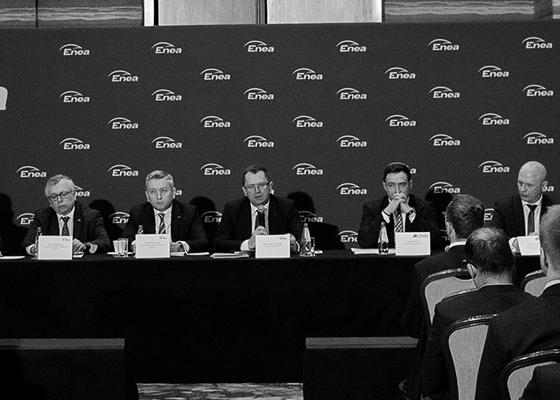1. Optimisation of the HR work organisation model aimed to facilitate the Group’s activity
The essence of the new model is:
- creating HR policy at the level of ENEA S.A. and cascading the assumptions for implementation to individual member companies of the Group, which is to ensure the cohesion of HR operations and support for the pursuit of ENEA Group Strategy
- ensuring business support in member companies of the Group through HR Business Partners responsible for implementing HR solutions, supporting the Management Boards and the management staff in HR managing, and cooperation with the company’s trade union organisations
- development and implementation of cohesive HR processes and standards throughout ENEA Group in such areas as: recruiting, hiring, and changes to employment terms and conditions, development policy, training, management by objectives, incentive systems, etc.
- leaving in the Shared Service Centre at ENEA Centrum only the operating activities in the field of HR and payroll services, the Company’s Welfare Benefits Fund, handling of training, and settlement of trade union organisations
2. The implementation of the Generation Change Scheme (GCS) aimed to ensure the proper exchange of personnel and maintain the competence at ENEA Group, which warrants maintaining the continuity of business processes. GCS includes 3 components: the Voluntary Redundancy Scheme announced in 2016, the Competence Improvement Scheme, and the New Payroll Policy. The above components are systemic operations and will be continued in the subsequent years throughout ENEA Group
- Voluntary Redundancy Scheme (VRS) – the process is underway of presumed restoration of jobs for the employees who terminated their employment contracts under the VRS
- Competence Improvement Scheme – starting long-term Development Schemes targeted at all employees of ENEA Group. The first stage of the project: the audit of competence, diagnosing competence gaps and obtaining employees’ opinions on the organisation in the satisfaction survey. Developing an action plan based on an analysis of the results of the satisfaction survey
3. HR process digitalisation – initiating the operations aimed to introduce electronic personal files (e-files) and electronic document circulation in the scope of processes handled by HRBP (recruiting, hiring, changes to employment terms and conditions, etc.)
4. Operations in the field of employer branding aimed to win the best candidates for work, including the measures targeted at students and graduates, such as promoting at higher schools and during career fairs the “Get installed at ENEA” internship and student practice programme, implementation of the dual education program, cooperation with student organisations and activities dedicated to students of vocational and technical schools through the implementation of a model of cooperation with patronage schools in the areas of operations of the companies, promotion of work for ENEA among schoolchildren and students - potential employees and support for schoolchildren and students in the education process. Activities related to employer promotion also include participation in job fairs in order to promote job offers among job seekers, professionals and specialists, as well as maintaining employer profiles in social media. In this area, activities are also undertaken aimed at current employees through running the Employee Zone in the intranet, organizing competitions and updating the Code of Ethics of ENEA Group
5. Permanent review of incentive systems and adjusting them to market conditions; implementing the tool for management by objectives, being the basis for transparent and incentive remunerating for the performance, including remuneration for the management and for the sales personnel




